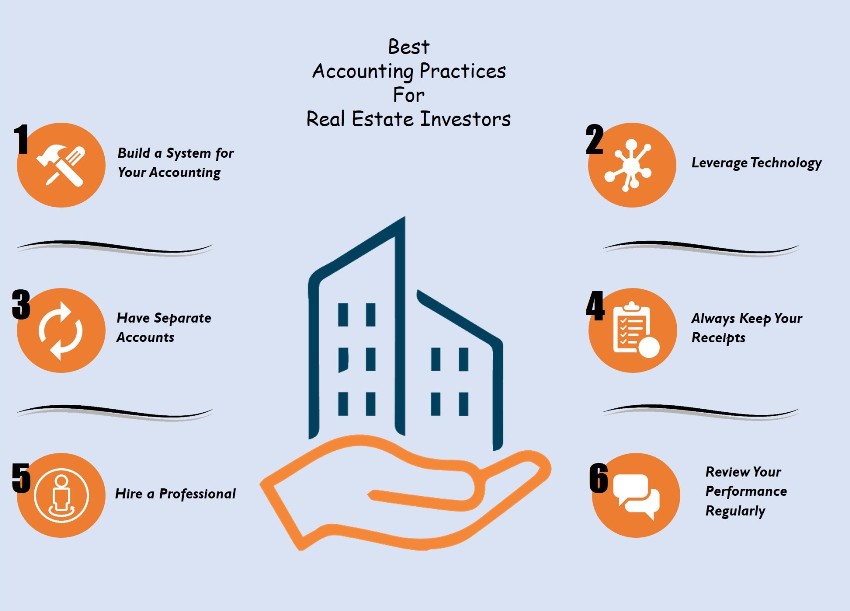Understanding the Challenges of Construction & Real Estate Despite Market Changes
Understanding the Challenges of Construction & Real Estate Despite Market Changes
Blog Article
Vital Techniques for Efficient Construction Audit in Building & Realty Projects
In the vibrant landscape of construction and property, effective bookkeeping practices are critical to project success. Understanding the fundamental concepts of building and construction audit, coupled with the application of task costing techniques, can dramatically improve monetary accuracy. Leveraging modern technology with innovative administration software enhances operations and assists in vital compliance with guidelines. As the industry deals with boosting intricacy, the need for normal monetary efficiency monitoring ends up being vital. The concern continues to be: what particular approaches can be utilized to make certain that these vital components seamlessly integrate for optimal outcomes?
Comprehending Building And Construction Audit Basics
Construction accountancy is a customized field that requires an extensive understanding of monetary monitoring concepts customized to the unique difficulties of the building market. Unlike traditional accountancy, which concentrates on a constant collection of monetary tasks, building and construction bookkeeping need to make up the vibrant nature of tasks, fluctuating costs, and varying timelines.
Crucial element of building bookkeeping include task costing, contract monitoring, and financial coverage. Task costing allows companies to track expenditures linked with certain jobs, guaranteeing that budgets are abided by and productivity is taken full advantage of. Exact contract management is critical as it involves the detailed handling of modification orders, progress invoicing, and retention, all of which can significantly impact capital and job end results.
In addition, monetary coverage in building bookkeeping demands the use of certain metrics, such as Job in Progression (WIP) records and percentage-of-completion accountancy. These tools supply stakeholders with insights right into task performance and economic wellness. By mastering these fundamental facets, building and construction specialists can enhance monetary oversight, boost decision-making, and ultimately drive job success, guaranteeing that both long-term goals and temporary objectives are satisfied effectively.
Executing Task Costing Approaches
Effective task costing approaches are important for building and construction companies to keep financial control and improve earnings. By properly tracking prices connected with each job, companies can determine areas of overspending, boost budget administration, and maximize source allocation. Carrying out an organized strategy to work costing includes several key strategies.
First, develop a clear framework for categorizing costs. Straight prices, such as products and labor, need to be divided from indirect prices, like expenses and management expenditures. This distinction enables even more specific tracking and analysis.

Third, frequently evaluation and upgrade price information to mirror real-time task problems. This makes it possible for prompt changes and informed decision-making, ensuring that projects stay on track economically.
Utilizing Building And Construction Administration Software
In today's competitive landscape, leveraging construction monitoring software application has ended up being a crucial device for improving project efficiency and accuracy. These software program options improve various aspects of building and construction accountancy, from budgeting to invoicing, allowing project supervisors to preserve accurate economic oversight. By incorporating real-time information tracking, groups can read keep track of costs and readjust budget plans proactively, ensuring that tasks stay financially sensible.

Furthermore, building and construction monitoring software helps with improved communication amongst stakeholders. With centralized systems, all staff member, from job supervisors to subcontractors, can access up-to-date economic information, lessening disparities and enhancing collaboration. This transparency not only help in decision-making yet also fosters depend on amongst all parties included.
In addition, the automation of routine bookkeeping jobs lowers the likelihood of human mistakes, which can cause pricey financial mismanagement. With functions such as automated billing and cost tracking, construction management software application permits groups to concentrate on tactical planning and execution instead of administrative tasks.
Eventually, adopting building and construction management software application stands for a financial investment in functional performance, placing companies to react agilely to the dynamic needs of building and construction and actual estate tasks. Embracing these devices can considerably elevate the criteria of construction accounting practices.
Ensuring Compliance With Regulations
Maintaining compliance with laws is a fundamental facet of successful building and construction audit that can not be overlooked. Construction projects undergo a myriad of local, state, and federal regulations, influencing everything from security requirements to financial reporting demands (Construction Accounting). It is crucial for building accounting professionals to remain informed regarding these policies to avoid economic setbacks and legal charges.
One trick strategy is to carry out durable radar that keep an eye on conformity in real-time. This might consist of routine audits of economic records, contracts, and permits to make sure alignment with governing expectations. Furthermore, buying ongoing training for accounting personnel can promote a culture of compliance, allowing the group to promptly adjust to regulative adjustments.
Cooperation with legal and compliance experts is likewise essential. Their insights can assist determine possible compliance pitfalls before they intensify right into significant concerns. Developing clear interior policies that outline conformity treatments ensures that all team participants comprehend their duties. By focusing on conformity in building audit techniques, companies not only alleviate dangers however also boost their reputation and functional effectiveness, eventually adding to the task's general success.

Tracking Financial Performance Frequently
Frequently keeping track of financial performance is critical for the success of building projects, as it offers useful insights right into budgeting, capital, and general project viability. Effective economic oversight allows project managers to recognize disparities between projected and real expenses, allowing for timely restorative actions.
Applying an organized method to financial surveillance involves making use of vital performance indications (KPIs) such as profit margins, price variations, and earned worth analysis. These metrics promote a clear understanding of task health and wellness, enabling teams to make enlightened decisions.
Constant reviews of financial information also help in forecasting future expenditures and income, aiding to prevent capital scarcities that can jeopardize task timelines. Employing sophisticated bookkeeping software program can enhance the monitoring procedure, giving real-time updates and enhancing data accuracy.
Furthermore, developing a regular for economic efficiency evaluations promotes accountability amongst team members. Routine economic meetings ensure that all stakeholders remain aligned on job objectives and financial objectives. By prioritizing consistent financial tracking, building and construction companies can mitigate risks, enhance source allocation, and ultimately enhance job success.

Final Thought
Finally, effective building and construction audit is essential for the effective administration of building and construction and realty tasks. By carrying out durable task setting you back approaches, leveraging advanced construction management software, guaranteeing regulative compliance, and frequently monitoring monetary performance, companies can improve economic oversight and mitigate threats. These crucial strategies not only advertise adherence to spending plans however additionally facilitate informed decision-making, eventually leading to enhanced task outcomes and long-lasting monetary sustainability in the building market.
By mastering these foundational facets, construction specialists can improve financial oversight, improve decision-making, and ultimately drive task success, making certain that both temporary goals and lasting goals are met efficiently.
These software options improve numerous elements of construction audit, from budgeting to invoicing, allowing project managers to preserve specific financial oversight. By focusing on consistent economic monitoring, check my reference building and construction firms can minimize risks, enhance source allowance, and inevitably boost task success.
In conclusion, visit their website reliable construction accounting is vital for the successful monitoring of building and construction and real estate jobs. By implementing robust task setting you back methods, leveraging innovative building monitoring software, guaranteeing regulatory compliance, and routinely checking monetary efficiency, companies can enhance monetary oversight and mitigate risks.
Report this page